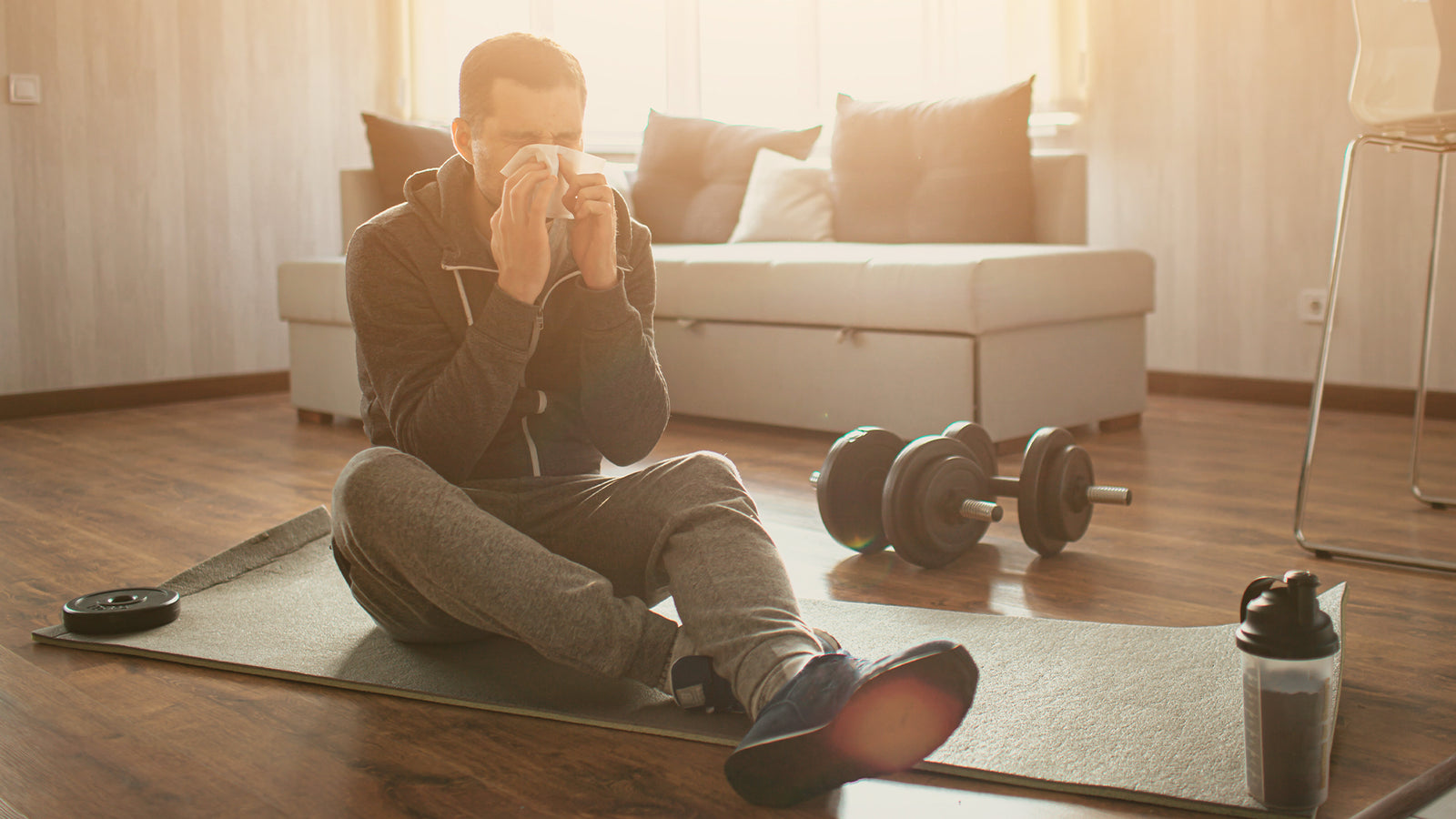Let fitness be your Body’s Natural Defense Against the Cold & Flu.
It may not be cold out, but people are spending time indoors in closer proximity as if it were -40! Aside from washing your hands, drinking hot fluids, and taking immune system boosters, the best way to stay well is to keep your immune system strong—and regular exercise plays a starring role in keeping you healthy and preventing illnesses. Never underestimate the effects of regular fitness as it strengthens your immune system and helps fight viral and bacterial infections like no other.
So, could fitness be the key to keep you from getting the flu this year? In short—yes. Studies have shown that as little as 20 minutes of exercise each day can have anti-inflammatory effects that boost your immune system and keep you healthier than those who are not active.
Fitness empowers the body to fight viruses and bacteria. To simplify the process: when you exercise, your white blood cells—which are the body’s immune system cells that fight disease—start to circulate more rapidly and are able to do their jobs better. This allows them to detect illnesses earlier. You are also flushing bacteria out of the lungs and airways, which will reduce your chance of getting a cold or the flu. The brief rise in body temperature during and right after exercise also prevents bacteria from growing. This temperature rise helps the body fight infection better, similar to what happens when you have a fever.
Exercise also slows down the release of stress hormones. When our bodies are stressed, there is an increased chance of illness as we have lowered immunity. Thus, the lower our stress hormones, the better we are able to protect ourselves from illness.
Now, let’s talk about sleep for a moment. Sleep is also a very large factor in the stress equation. Getting good quality sleep is crucial to keeping our immunity in top bacteria-fighting form. I personally sleep so much better on days when I have been physically active. Again, it doesn’t need to be an intense workout, but it does need to get your heart pumping and your temperature up. Use fitness to sleep better, to stress less, and to boost the body’s ability to deflect various illnesses.
The best part: it’s as easy as going for a walk or light run, taking the stairs, or enjoying a swim. You don’t need a gym membership –though that’s always nice!
So, you are also probably wondering what to do if you have the flu or the common cold. Is exercise recommended? Below are some general suggestions, but please always use your best judgment here, and listen to your body!
Here are a few DOs and DON'Ts:
- DO exercise moderately if your cold symptoms are confined to your head, also known as the common cold. If you're dealing with a runny nose or sore throat, moderate exercise is fine. Intense exercise can be resumed a few days after symptoms subside.
- DON'T jump back in too soon. If you're recovering from a more serious bout of cold or flu, gradually ease back into exercise after at least two weeks of rest.
- DO stay in bed if your illness is spread beyond your head. Respiratory infections, fever, swollen glands, and extreme aches and pains all indicate that you should rest up, not work out.
So, in general, if your symptoms are from the neck up, go ahead and do some light-moderate activity (e.g. a light jog or light lifting). However, if you have general aches and pains or a fever, it's important to rest well and allow your body to combat the illness.
My hope is that your body is primed by regular physical activity before the cold, so it will respond faster. I strongly believe those with a fever should skip the workout altogether while the body battles the infection. Keep in mind the flu is highly contagious and working out while sick can increase the spread of germs, risking infection to others.
Additionally, if you are suffering from the flu, you should be mindful to get plenty of rest and fluids. Rest allows the immune system to work better against an active illness and fluids can help replenish moisture lost due to high temperatures.
A good thing to always remember is that the healthier you are, the easier you'll find it is to fight off infections. I am a firm believer that physical activity is the best way to boost our immune systems in an effort to prevent the flu and or speed up recovery. People who are physically active on a regular basis generally have efficient immune systems; therefore, recovery times are usually faster. Although it's impossible for people to indefinitely avoid ever getting sick, fitness is one of your body’s natural defenses against cold and flu all year round.
Looking for some new ways to add fitness into your routine?
Give this 20 min circuit a try!
*add weights where applicable for an added challenge
Do each exercise for four minutes, alternating between 20-second intervals of intense work and 10 seconds of rest.
After eight intervals of each (four minutes total), move onto the next exercise.
| Burpees | 20 seconds |
| Rest |
10 seconds |
| Repeat | x 8 |
| Speed Skaters | 20 seconds |
| Rest | 10 seconds |
| Repeat | x 8 |
| Crab Toe /Touches | 20 seconds |
| Rest | 10 seconds |
| Repeat | x 8 |
| Jump Squats | 20 seconds |
| Rest | 10 seconds |
| Repeat | x 8 |
| Curtsy Lunge | 20 seconds |
| Rest | 10 seconds |
| Repeat | x 8 |
Blog by Sabrina Virdee.

